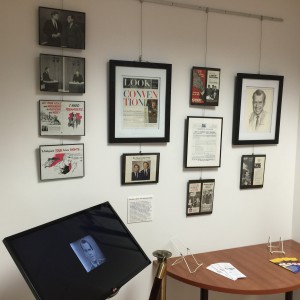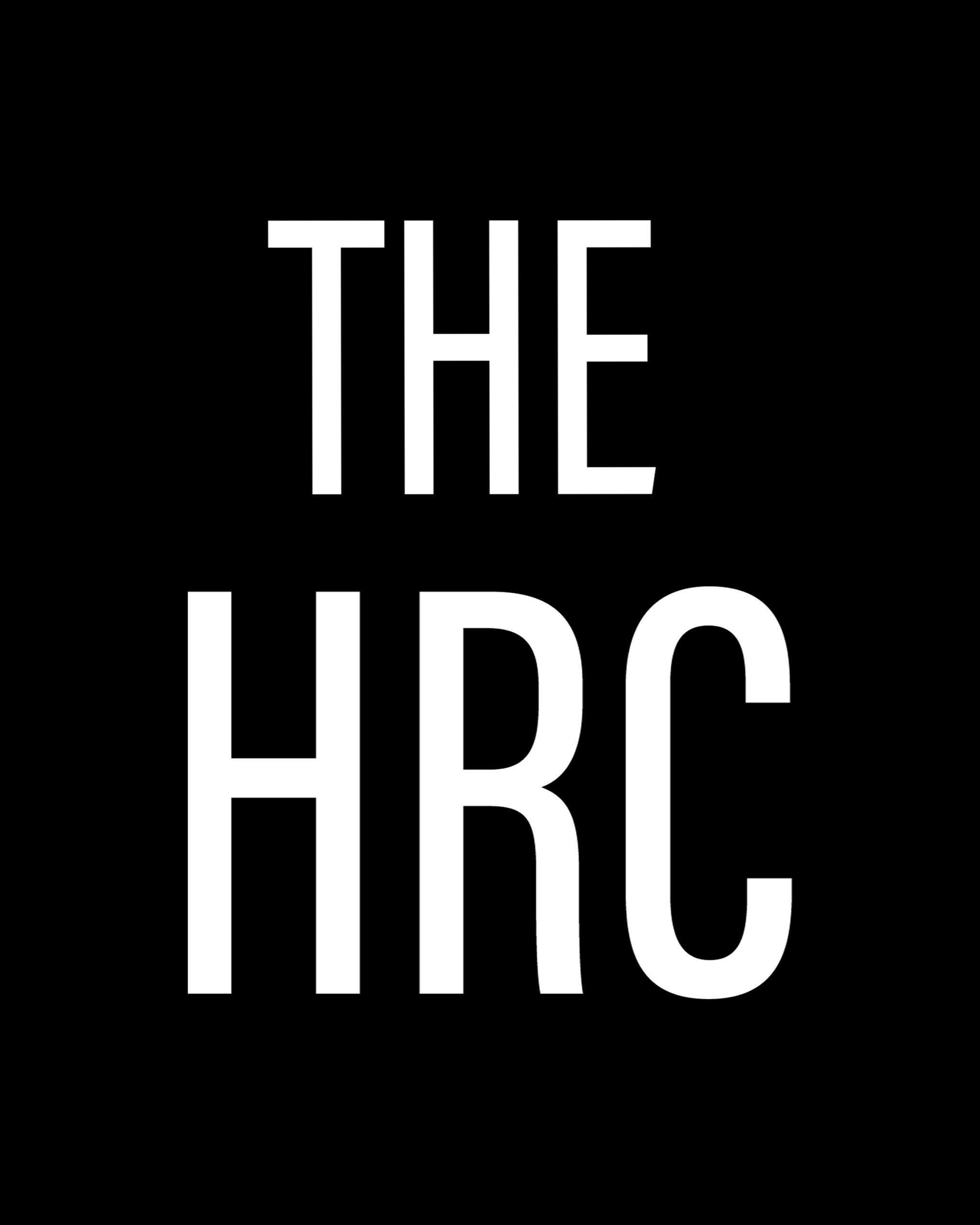September 15-December 15, 2016
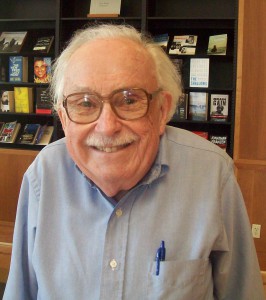
This exhibit owes a great deal to the generosity of the late Dr. Charles McCall. He was a founding faculty member of CSUB when it was known as California State College, Bakersfield and served as the chair of the Political Science Department. He also had the distinction of being appointed by President Gerald Ford as Director of the White House Editorial Staff Research Office. The Estate of Dr. Charles McCall generously donated a substantial amount of political memorabilia, some of which comprise the bulk of this exhibit.
Your Vote is Important!
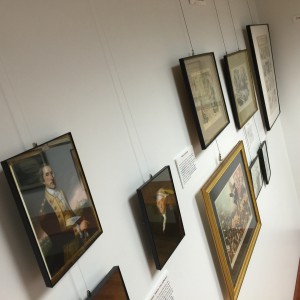
This Exhibit addresses how U.S. presidential elections have evolved over the years and have shaped today’s campaign methods. This process gained momentum after the relatively smooth transitions of the first few elections paving the way for 19th-century political, and often satirical, cartoons as well as songs extolling the merits of a candidate. The 1900s gave birth to widespread media campaigning including the radio and television, as well as the Internet today. Mementos of these events are on display for your viewing, and make sure to enjoy the video clip of the first televised debate from the 1960 election.
POLITICAL CARTOONS
Political cartoons first emerged in the Colonies in the mid-1700s. During the campaigns of the 19th and 20th centuries, many politicians found themselves transformed into satirical, exaggerated, and distorted versions of themselves. By 1900, American newspapers were employing nearly 500 editorial cartoonists.
MUSICAL POLITICS
The incorporation of songs into presidential campaigns helped shape the outcome of future elections. After Alexander C. Ross wrote a song called “Tippecanoe and Tyler Too” for presidential candidate William H. Harrison and his running mate John Tyler, campaigning with songs became increasingly popular.
WOMEN’S FIGHT FOR THE VOTE
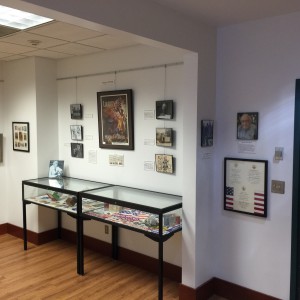
Beginning around the mid-1800s, women’s involvement in politics increased, and the suffragette movement was born. Several iconic images of this struggle are on display.
TURN OF THE CENTURY CAMPAIGNING
During the campaign and election of 1896, William McKinley followed the footsteps of previous presidential candidates and campaigned from his home, delivering 350 speeches from his front porch in Ohio. In his re-election campaign in 1900, he spent millions of dollars sending out weekly postcards and written inserts to over 5000 newspapers.
TECHNOLOGY JOINS THE CAMPAIGN PROCESS
In 1922, President Warren G. Harding became the first president to have his voice transmitted over the radio during a memorial dedication, and during Herbert Hoover’s campaign in 1928, he gave seven radio speeches that were broadcast to the nation. In the 1930s and 40s, the use of radios became much more common, but in the 1950s, a new source of media emerged: the television. Campaigning in 1952, Dwight D. Eisenhower became the first candidate to use television advertisements to send his messages to the American people.
THE MODERN PRESIDENCY
John F. Kennedy’s run for the presidency in 1960 ushered in a new era of campaigning. He and Richard Nixon faced each other in front of 65 million viewers during the nation’s first televised presidential debate. Kennedy’s physical appearance had an immediate impact on his popularity and eventual win, demonstrating that today’s candidate is expected to not only be knowledgeable on political issues, but to also look the part of a strong, vibrant, and healthy leader.
ABRUPT TRANSITIONS TO THE PRESIDENCY
The campaign to the Presidency often begins years and even decades in advance. Some presidents, however, have stepped up to the highest office of the United States with only a moment’s notice. Two such instances are spotlighted in this exhibit: Johnson’s ascendancy after JFK’s assassination and Ford’s transition after Nixon’s resignation.
POLITICAL TURMOIL: 1968
Politics have never been free of strife, but 1968 was a noteworthy year of trouble. The Democratic Party suffered a great loss when Robert Kennedy was assassinated and was forced to turn to Hubert Humphrey as its nominee. At the same time, George Wallace made an independent bid running on the American Independent Party ticket. Richard Nixon eventually prevailed and began his first term in office.
21st CENTURY
George W. Bush’s first election in 2000 was one of the most controversial in U.S. history. His opponent, incumbent vice-president Al Gore, narrowly beat him in the popular vote. However, a contentious demand for a recount, beginning with Florida’s votes, led to Supreme Court intervention and a reversal of the victory based upon electoral votes.
Another milestone for the presidency was reached in 2008. Barack Obama was elected that year, making him the first African-American to attain that position.
